David Brereton founded Myson Pages 25 years ago, while most of his peers were operating on a break/fix model. Today, he has 15 employees and supports SMEs with a range of IT requirements. He explains how to run a successful MSP.
An Interview With David Brereton
Why Myson Pages do Managed Services Differently
David explains that from the very start, their aim was to replicate their offerings for larger businesses and give them to SMEs. “Because at the time, it was all break/fix and the IT companies made a bit of money.
“But we thought the SMEs deserved consistency too. We know that they just want us to look after their IT and limit any problems. In the early days, we used to try to make them into our ideal customers. Now, we tend not to work with people if they don’t fit.”
And David is honest that if customers treat him more as a supplier than as a partner, he’s willing to let them go. It’s not always easy to do, but if an MSP can build a network of clients who’ll stay long-term and become like friends, they’re sorted.
The Company Culture of a Successful MSP
Throughout our conversation, David emphasises why his business is more like a family, and that’s why he has a successful MSP. But having recently worked through the Traction model, he’s now defining the company’s values.
“We’ve come up with six. And while the sixth one is only two words, it effectively replaces the other five, because it sums up so well what matters to us: ‘we care.’ It sounds so simple, but we’ve fallen foul of companies that don’t care as much as we do.
“As soon as someone reports a server issue, we all care about the outcome. And we’ve got inquisitive minds. So it’s not enough for us to say ‘OK, fixed that.’ We want to know why it failed and how we can prevent that from happening again. We like to go the extra mile.”
Why Peer Groups are Important if you Want to Grow a Successful MSP
David explains that he’s been involved in SBSC North West, a Manchester-based peer group, for many years. And he describes it as invaluable in terms of support and encouragement.
“All MSPs should just get involved. If you don’t enjoy it, you’ll only come once. But I guarantee you’ll find a warm welcome, especially at SBSC. I know that people often worry about sharing things with competitors, but it’s really not like that.
“Because it’s really all about sharing and collaborating. I’ve made friends with people I know solely through community events. We’ve never worked together. But I know if I needed anything I could ask and get it. Having backup like that is invaluable. You wouldn’t get it anywhere else.”
How a Successful MSP can Nurture Talent
David explains that at Msyon Pages, they have external support to nurture talent in the business. They use a company in Gateshead, Baltic Apprentices, to work with new employees to develop their skills.
“All of our new talent goes onto a level 3 apprenticeship, with some then completing level four. And we offer on-the-job training and vendor training. They get 18 months to complete it and most of them do well.
“But I say to them, ‘If you don’t complete it but you’re indispensable to the team, we’ll keep you on.’ And then I ask them what additional training they’d like in order to specialise. Because we’re small enough that people can choose a niche and excel.”
How to Support Employees with Personal Challenges
Just because someone’s work performance is impacted by personal challenges, that shouldn’t be a problem, says David. “They’re the same person. And if you want them to do a good job but they can’t because they’re not in the right place, you need to help them.
“I know from personal experience that life stuff happens unexpectedly. And it gets on top of you. So it’s important to me to offer support. If you can be there, listen and understand and show interest, sometimes that’s enough.”
David says that by engaging with staff and offering support, they start to feel better. And they can ask for help in other places too. “When we’ve had people struggling, we help. They know they’re family here, and they want to stay with us and be happy. As a team, we look out for each other.”
How the EOS Methodology Grows a Successful MSP
EOS is the entrepreneur’s operating system. And it’s described in the book ‘Traction by Gino Wickman.’ It works for any businesses, not just MSPs. But as David goes on to explain:
“It’s a way to run things, structure meetings, decide your values, your vision and your journey. However, it’s not a quick fix. We’re right at the start of our Traction journey, and it’s probably going to take 18 months to get to the end.
“But I know I’m not going to run the business forever. So I need a plan in place so the great leadership team I have now can take it forward. It’s shown us what’s important to have a good company, and I’m pleased that we’ve already ticked some boxes ahead of schedule. I’ve got good people and the right culture now.”
How to Connect With David Brereton
- Myson Pages
- Follow Myson Pages on LinkedIn
- Connect with David on LinkedIn
- Follow Myson Pages on X
How to Connect With Me
- Subscribe to TubbTalk RSS feed
- Subscribe, rate and review TubbTalk on iTunes
- Subscribe and rate TubbTalk on Spotify
- Follow TubbTalk on iHeartRadio
- Follow @tubblog on Twitter
Mentioned in This Episode
- Documentation solution: IT Glue
- Broadband provider: Zen Internet
- Business book: Gino Wickman: Traction: Get a Grip on Your Business
- Peer group: SBSC North West and co-lead Robert Gibbons
- TubbTalk podcast: Why Personal Branding is Important for Standing out in the MSP Community
- TubbTalk podcast: Looking into the Mindset of a Successful, Modern MSP
- IT solutions provider: Aabyss
- Cloud marketplace: Pax8
- Tech apprentices supplier: Baltic Apprenticeships
- IT solutions provider: Enable
- Mark Williams at Pensar (IT support)
- Cybersecurity distributor: Brigantia
- Dan Sullivan at Strategic Coach
- Neil Greatorex
- Peer group: CompTIA

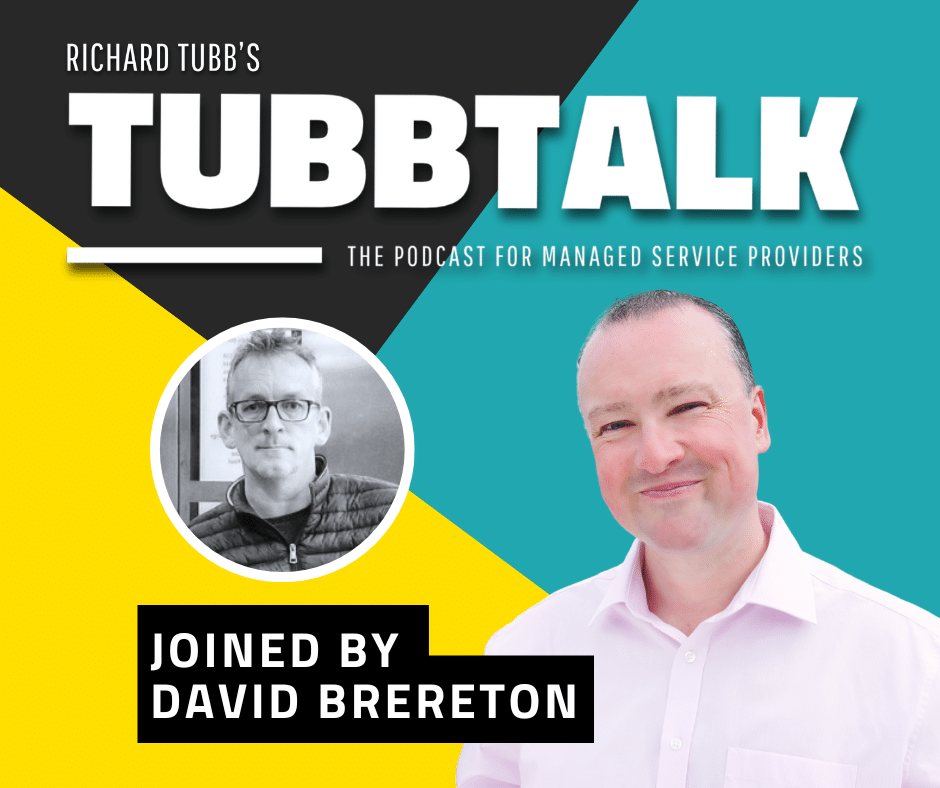





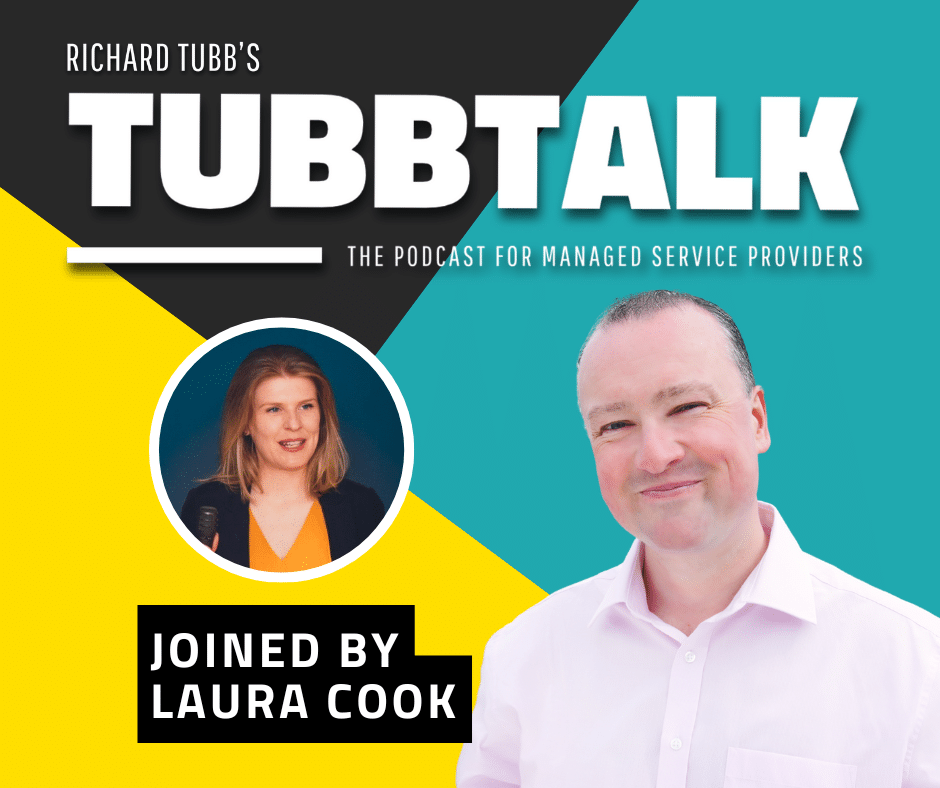

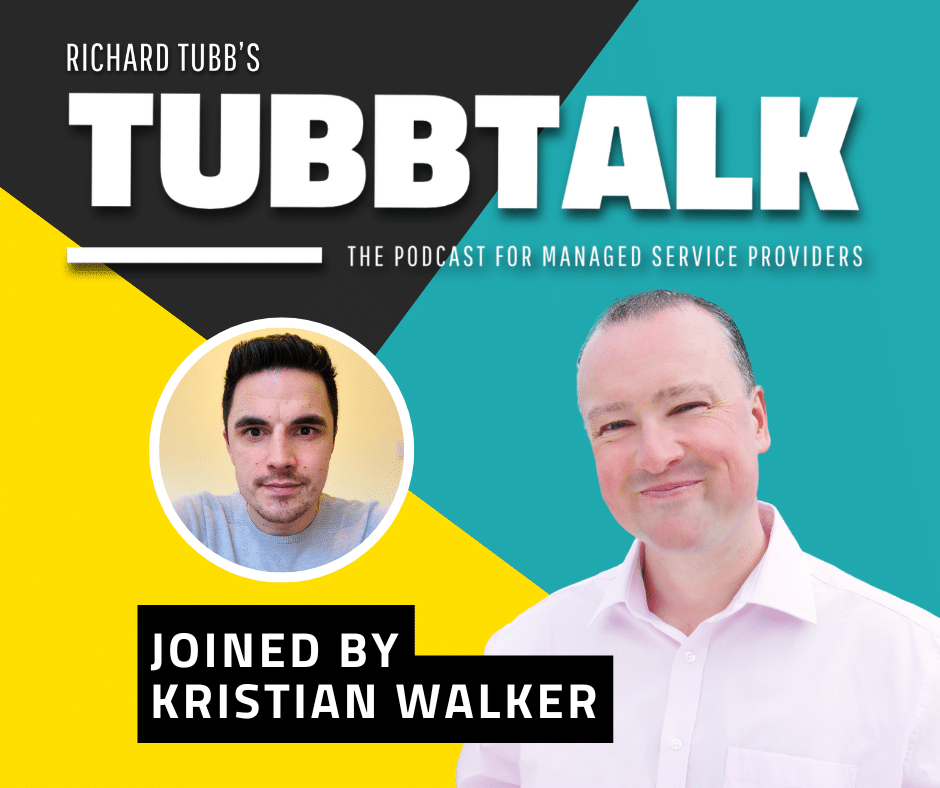
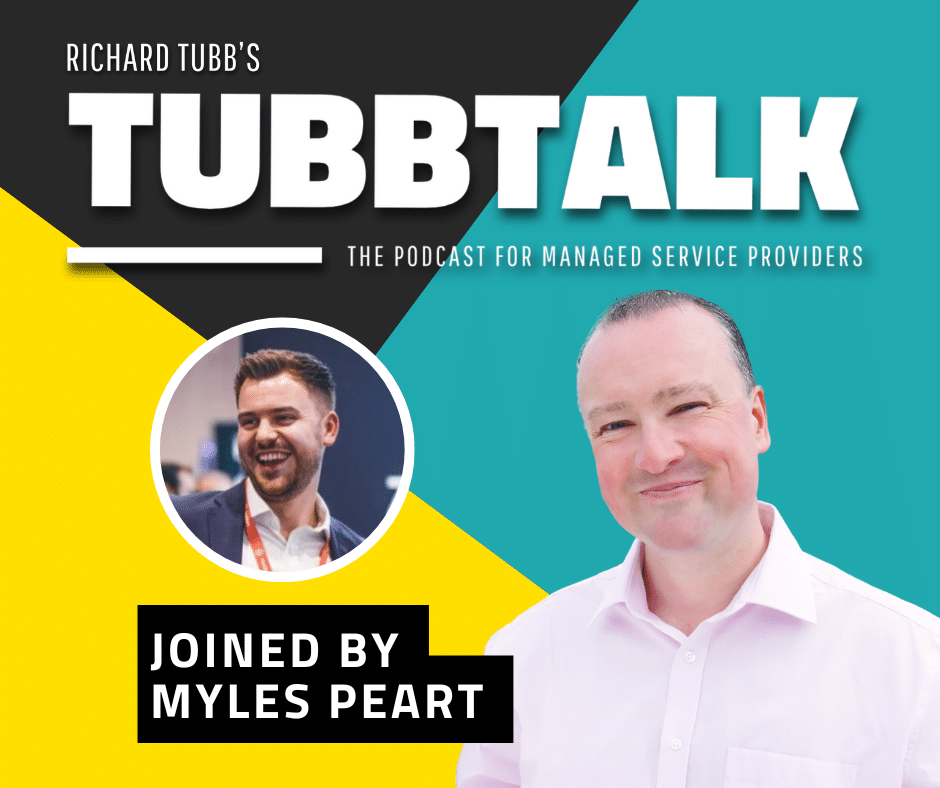


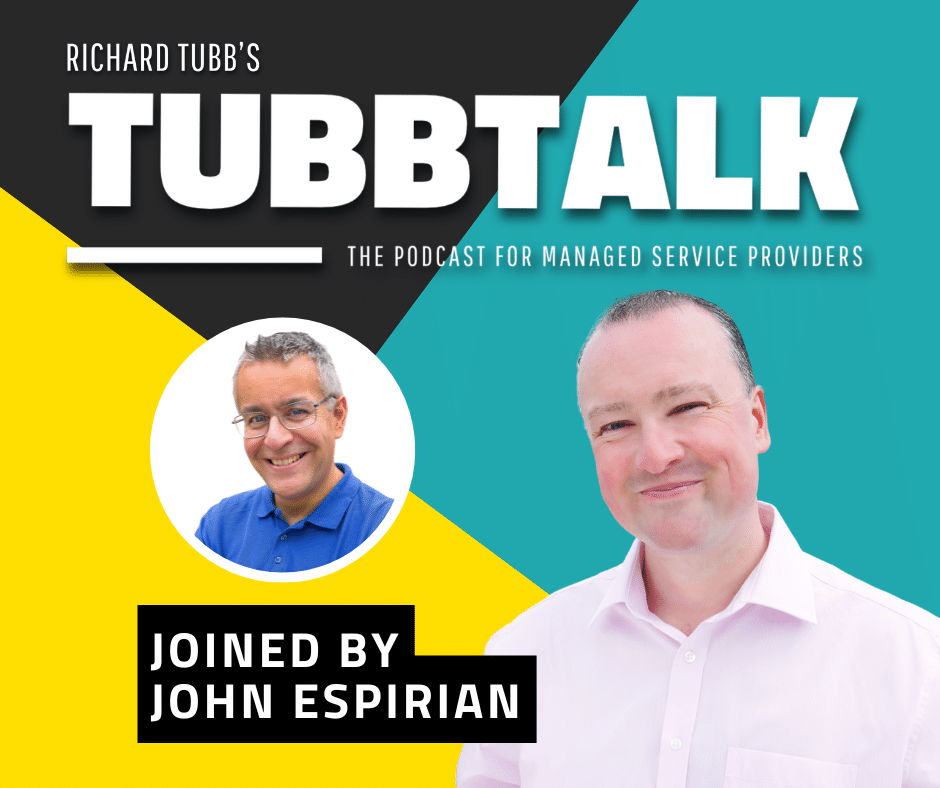

Comments